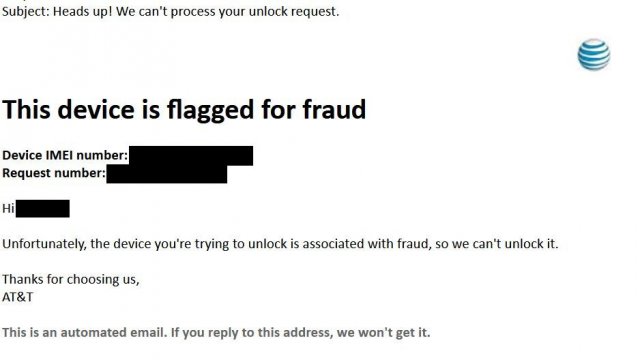It began a month ago, when we made the decision to switch our phones from AT&T to Spectrum. Spectrum is our cable internet provider, and now offers mobile phone service, which through some sleight of hand is actually Verizon.
We had been loyal AT&T customers all our long lives, from back when "Ma Bell" was the only way to go for long distance; through the forced breakup of AT&T that led to our move to Florida in the mid-1980's and Porter's 17 years of employment with the company; to our very first cell phone ("car phone") in the early 90's, and many changes of phones and phone service since—wherever we were, whatever our phones, it was all AT&T. I do know that there's really nothing left of the original AT&T besides the name, but still, it hurt to leave.
But recently we had two very annoying and expensive experiences with AT&T:
- "I don't care what the e-mail we sent you says, our system says differently so we're not going to honor the deal you signed up for."
- "Whatever made you think that making a call using Wi-fi Calling would not cost an arm and a leg when calling Switzerland?")
When these were quickly followed by
- A shockingly high price increase,
that was it for the camel's back. Spectrum/Verizon offered a price/service combination that was such an improvement we decided it was worth trying.
However, our AT&T root system was apparently stronger than we knew.
We made the account switch with ease, or so it seemed. When our new SIM cards arrived from Spectrum, Porter's phone made the switch without a hitch. My phone, on the other hand....
As I powered my phone back on after inserting the new SIM card, the phone insisted that I enter an unlock code. This was a bit concerning, as the phone was supposed to have been unlocked already. Thus began more than three weeks of struggle (mostly Porter's heroic work) with AT&T, Spectrum, and Samsung.
We tried multiple times to unlock the phone using AT&T's website. A few days after each try, we'd get an e-mail telling us there was a problem.
Next level: phone calls. Many phone calls, countless hours. Each time we'd be assured that an unlock code would come by e-mail "in a few days." Each time the result was failure.
By this time, we were on vacation in Connecticut, thankful to have one working phone as we continued the adventure. Hoping that being physically present might move things along, we took my phone to the local AT&T store. Although the sales clerk was friendly and tried to help, there wasn't much he could do as a simple reseller of AT&T services. So he sent us to a true AT&T store, half an hour down the road in Branford. As we drove along, we tried another phone call, ending up on hold for about an hour and a half in total, before giving up.
The Branford guy started our visit optimistically: "I can fix anything." Before we were done he'd gone so far as to drag the District Manager from another store out of a meeting to help. She was able to confirm that there was absolutely no reason we shouldn't be able to unlock the phone, and she said it shouldn't be necessary for us to drive to her store. We were grateful, as it was at that point rush hour, which in New Haven is nothing to be trifled with, and would have more than doubled the nominal 20-minute drive time. She escalated our problem up to highest priority, and we left the store armed with her telephone number.
Unfortunately, in the end, even that came to nothing. We went home to Florida.
Several more phone calls and no progress later, we learned that, while our problem was stilll "highest priority," it no longer had a person attached to it but had been kicked back to being assigned to a group. Knowing AT&T's trouble ticketing system from the inside out, Porter recognized this as the place insoluble problems are sent to die.
I'm half convinced the various companies hired someone's creative writing class to invent the reasons why they couldn't give me an unlock code.
- (AT&T) "Something went wrong, try again."
- (AT&T) "We can't give you a code because we can't get one from Samsung."
- (Samsung) "We can't give you a code because we don't do that; the code has to come from the carrier." (True, but it turns out that there is actually a code that must come from the manufacturer to the carrier, first.)
- (Samsung) "We can't give you a code because you bought the phone directly from us and all our phones ship unlocked already." (True, though it appears AT&T subsequently locked it, because we paid for it through our AT&T bill.)
- (AT&T) "We can't give you a code because your phone is already unlocked." (That's what their system kept telling them, but it was clearly untrue.)
- (Spectrum) "We can't help you because it was locked by AT&T."
- (AT&T) "Success! Here's your unlock code." That might have been encouraging, except that the code was simply "0." Right. An unconvincing null. With infinitesimal faith that it would work, we used up two of the five allowed attempts (after which the phone would become "permanantly locked") trying both a simple 0 and enough 0's to fill in the requested number of digits. As expected, it didn't work.
My all-time favorite of their excuses I reproduce below:
What on earth was the problem? We had bought the phone new, directly from Samsung, and it's hardly been out of my presence ever since. For a long time, this one had me looking over my shoulder for the FBI. Hey, if they can raid the private residence of a former U.S. president on the flimsiest of excuses, what chance do the rest of us have? Are they still mad about the grainy picture of Osama bin Laden that so annoyed Facebook?
After learning that there was little to no chance of our problem getting out of the trouble ticket graveyard, Porter employed a different tactic, one I would have given no chance at all of making any difference: He filed a complaint with the Federal Communications Commission.
Have you ever wondered if governmental agencies actually do anything to earn their tax dollars? In this case, Porter's complaint generated near-immediate action, first by the FCC itself and then by AT&T.
I'm not kidding: in a very short time he received both an e-mail and a phone call from the office of the president. (Of AT&T, that is, not Joe Biden.) A friendly and competent-sounding person promised to see what she could do.
At this point we began seriously debating how we would proceed if AT&T decided they were spending 'way too much money on this problem and offered to give us a new phone instead. It was not an easy decision. The lower-level folks who had no power to do so were, of course all in favor of giving away a phone. The mid-level folks grudgingly acknowledged that it might be a possibility, but only if I turned over my phone to them first. There was absolutely no way that was going to happen; my phone was not going to leave my possession until I had a working replacement with all my settings, apps, and data successfully transferred. Maybe they would be willing to send the new phone to our local AT&T store until we could successfully make the switch.
Then there was the problem of which phone? I didn't expect an upgrade to a more current phone: my Galaxy S9, even though it was the lastest thing in 2018, is now so old it's almost useless as a trade-in. I'd have been happy with a new S9, but do they even have any of those hanging around? Would I be offered a used, reconditioned phone, and would I be okay with that?
As it turned out, all that speculating was unnecessary. In only a few days, Porter received an e-mail with a non-zero unlock code.
Not without some trembling, we carefully, step by step, followed the instructions and entered the code into my mobile phone.
I have a working, Spectrum-serviced, cell phone.
A small part of me is reluctant to admit that. It was surprisingly easy to get along for nearly a month without one. Certainly it helped that I could do almost anything I wanted to with my phone, as long as I had wi-fi, which these days is nearly ubiquitous, even here.
I only missed a couple of things:
- The ability to make non-911 phone calls. (All phones work for emergencies, or so my phone told me.) If I were designing something named "Wi-Fi Calling," it would work using wi-fi when one does not have cell service. I mean, otherwise, what's the point? Especially if carriers are going to charge the same price as for regular cell calls (see above). But I wasn't the designer on that one. Even though I drove for decades without having cell service, I couldn't drive this past month without being aware of the lack.
- The ability to send and receive texts. That, too, should be possible over wi-fi.
Grateful as I am to have a fully-functioning phone, I have to say that a month without phone calls and texts was not all bad, It was rather nice, in fact—especially during political season.
Many thanks to all those ordinary people at AT&T and other places who were friendly and cheerful, and truly seemed to be doing what they could to help us. And deep gratitude to the one person at AT&T who somehow cut through the nonsense and got the job done. As Porter said in his thank you note to her, "If everyone at AT&T were as effective as you are, we'd still be customers."





